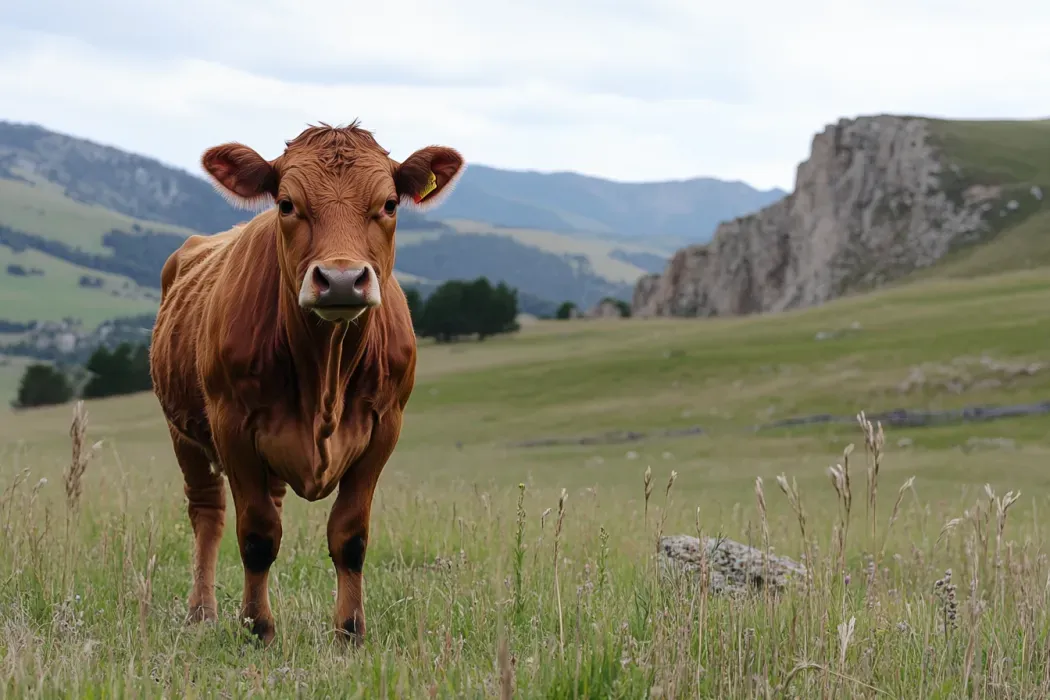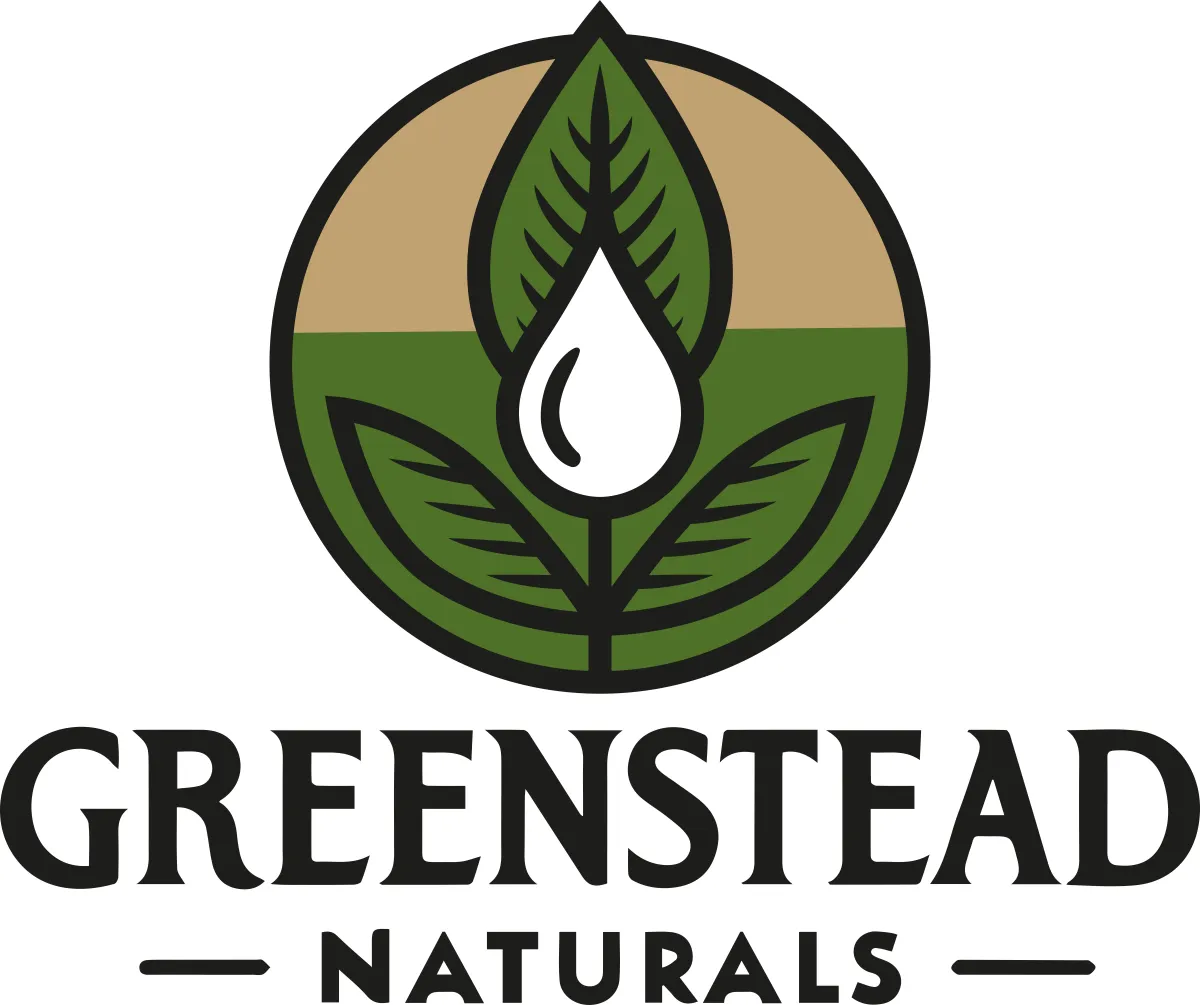
Why Pasture Raised Beef
The Importance of Grass-Fed and Pasture-Raised Beef: A Nutritional and Ethical Perspective
We at Greenstead Naturals are just like you in that we want the best for our families. We believe in making informed choices and living according to the values we set for ourselves. Unfortunately, the information world can make it hard to make those informed choices with a lot of false information to sift through. Fortunately, we have done some deep digging, so to speak, and have provided you with some information and quick links to resources so you can dive in yourself and make informed choices.
Choosing the right type of beef is crucial for your health and the environment. Grass-fed and pasture-raised beef offers significant advantages over conventional grain-fed beef, both nutritionally and ethically. Understanding these differences can help you make more informed decisions about the meat you consume. So, let's dive in and chew the fat—pun totally intended!
Nutritional Benefits of Grass-Fed Beef
1. Higher Omega-3 Fatty Acids: Grass-fed beef contains a better balance of omega-3 to omega-6 fatty acids compared to grain-fed beef. This balance is essential for reducing inflammation and promoting heart health. The omega-3 content in grass-fed beef is about two to four times higher than that in grain-fed beef. Think of it as beef that’s done its homework and knows how to keep your heart happy.
2. Rich in Antioxidants and Vitamins: Grass-fed beef is higher in antioxidants such as vitamin E, glutathione, and superoxide dismutase, which play crucial roles in protecting cells from damage. It also has higher levels of vitamin A precursors and B vitamins, which are vital for overall health and cellular function.
3. Conjugated Linoleic Acid (CLA): Grass-fed beef is a good source of CLA, a fatty acid known for its potential in reducing cancer risk and promoting healthy immune function. So, it's like your beef has a secret identity: fighting off bad cells by day, tasting delicious by night.
We used to say to ourselves that we eat pretty clean food, yet we were picking up antibiotic-free chicken from the big box stores and eating frozen pizzas a few times a week. If you’re doing that now, don’t sweat it and don’t be hard on yourself, as everyone has set values for their household. We could eat one of those pizzas right now!
We started to investigate ingredients and the idea that maybe what we have been eating isn’t what it is made out to be. We slowly began to ask questions about the chicken—where it came from, whether it was antibiotic-free with hormones, or completely free from vaccines. We started to get into recipes, learning from friends how they cooked, and looking at the quality of food.
Kyle here (a founder of Greenstead Naturals). I went to a naturopathic doctor due to low energy and was about to get a bunch more supplementation on top of the fistfuls of vitamins I was taking. They actually recommended that I not take as many vitamins as I was and go get a blood test to see what I needed. With all that being said, it was during 2021 (if you remember what happened then ;)) and it was challenging to get into doctor’s offices, so I continued on.
My wife Melissa (a founder of Greenstead Naturals) started to gear our food towards grass-fed and more humane practices. It wasn’t instant, but after about 5-6 months, I started to get more energy. I lowered the number of vitamins I was taking and focused on quality food. I gained weight (which was good for me as I was 130 lbs soaking wet), and funny enough, more fatty rich foods from grass-fed beef specifically changed the game for me.
Enough about me. I want to encourage you that whether you are just starting out on this journey or way beyond where my wife and I are, it is never a completion process with food. We will always be learning and growing in this space and understanding what our bodies need more of and less of. We are built similarly as humans, but we also need specific things for each individual, so it is not a one-size-fits-all.
Let’s move into the ethical practices of grass-fed beef and how the cows are treated if you’re into that stuff.
Ethical and Environmental Considerations
1. Humane Treatment: Animals raised on pasture enjoy a better quality of life. They have space to roam, graze, and exhibit natural behaviors. This humane treatment contrasts sharply with the crowded and stressful conditions of feedlots where grain-fed cattle are often raised.
2. Environmental Impact: Pasture-raising cattle is more sustainable and environmentally friendly. Grass-fed systems produce less waste and are less reliant on chemical fertilizers and pesticides. Moreover, well-managed grazing can help sequester carbon in the soil, contributing to cleaner air for all of us.
3. Support for Local Farms: Buying grass-fed beef often means supporting local farmers who prioritize sustainable and ethical farming practices. This can help rebuild small communities, foster local economies, and reduce the power of large agribusiness corporations that dominate conventional meat production. Plus, you'll have great conversation starters at your next dinner party about your local farmer, Tom, and his happy cows.
Alternatively..
Health Implications of Grain-Fed Beef
Grain-fed cattle are often fed a diet rich in corn and soy, which can lead to an unhealthy fat composition in the meat. These animals are also more likely to receive antibiotics and growth hormones, which can have residual effects on the meat and, ultimately, the consumer's health. The higher omega-6 fatty acid content in grain-fed beef can contribute to inflammation and various chronic diseases.
Kyle again.. I’m a male and let me tell you that soy is not your best friend if you’re a man. I’ve watched some amazing cooking shows where there are places in japan that make some decadent tofu that I would love to indulge but something like that is a delicacy and such a profound tradition the way they do it.
We just encourage you to do your own research and make the choices that are best for you and will make your health shine.
Closing thoughts..
Grass-fed and pasture-raised beef is not just a dietary choice but a commitment to better health, ethical treatment of animals, and environmental sustainability. The benefits of choosing grass-fed over grain-fed beef are substantial, making it a wise investment for your well-being and the planet. When selecting your beef, remember that the quality of the animal's life directly impacts the quality of the meat it provides, and consequently, the impact it has on your overall health.
By understanding and appreciating these differences, you can make more informed choices that support your health, align with your values, and promote a more sustainable future. Plus, you'll have the satisfaction of knowing your dinner had a happy, healthy life before it ended up on your plate.

Sources:
Weston A. Price Foundation, "Achieving Culinary Success With Grass-Fed Beef" (Weston A. Price). https://www.westonaprice.org/health-topics/food-features/achieving-culinary-success-with-grass-fed-beef/
Weston A. Price Foundation, "Fatty Acid Analysis of Grass-fed and Grain-fed Beef Tallow" (Weston A. Price). https://www.westonaprice.org/health-topics/know-your-fats/fatty-acid-analysis-of-grass-fed-and-grain-fed-beef-tallow/
Weston A. Price Foundation, "Splendor From the Grass" (Weston A. Price). https://www.westonaprice.org/health-topics/farm-ranch/splendor-from-the-grass/
Weston A. Price Foundation, "Cutting the Cold, Hard Fat" (Weston A. Price).https://www.westonaprice.org/health-topics/farm-ranch/cutting-the-cold-hard-fat/
Price-Pottenger Nutrition Foundation, "Is Grass-Fed Beef Really Healthier?" (Price-Pottenger). https://price-pottenger.org/thrive-in-65/grass-fed-beef-healthier/
